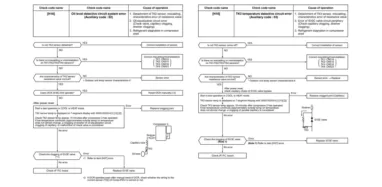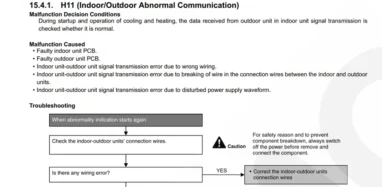Some people seem to think that they can just set their AC to their preferred temperature and expect it to do its job whatever happens. But, this is not always the case. Just so you know, there is a certain limit to how many degrees your AC can keep you cool when comparing differences between indoor and outdoor temperatures. Does outside temperature affect the air conditioner, then?
Does heat index affect air conditioning

Once humidity is added to the heat equation, there will be an increase in heat index and it will feel much hotter than it is. To make up for this humidity and heat, people often prefer to stay indoors to get out of the heat.
During these hot spells, your AC will work on overdrive and almost nonstop, which means more expenses for you. The humidity and heat will also affect your body negatively.
But, a lot of people don’t seem to realize that humidity and heat index can also affect your air conditioning unit. Aside from that, once the heat index hits too high or even too low, this can affect the ability of your system to achieve maximum levels of comfort.
While many systems feature dehumidifiers and humidifiers to compensate for such problems, constant adjustments can still impact your system.
Effect of ambient temperature on air conditioning
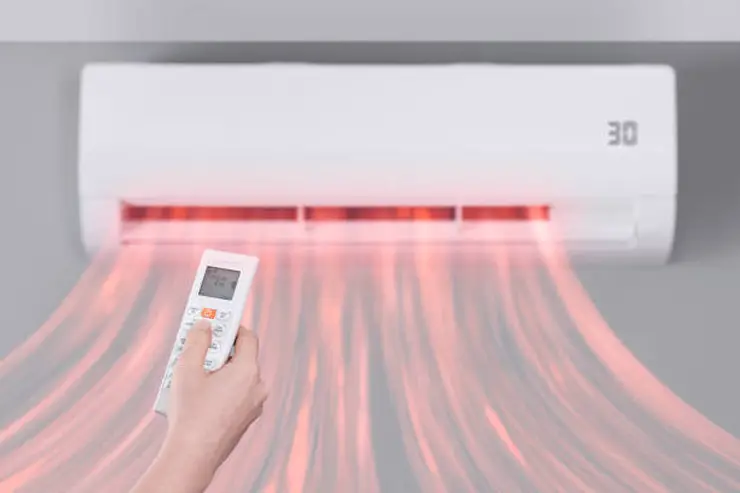
As temperatures rise at record-high rates and the world’s climate gets hotter by the day, it is simply unimaginable to live your life without your AC system.
Unfortunately, changing ambient temperatures can affect your air conditioning. Air conditioners are mostly developed to operate and function with outdoor temperatures ranging from 60°F to 95°F.
At less than 60°F, coils within the unit may be free and your AC unit might not be able to work as well. At more than 95°F, the AC unit will need to overwork and will have a difficult time reaching the set temperature on the thermostat.
Does outside temperature affect window air conditioner
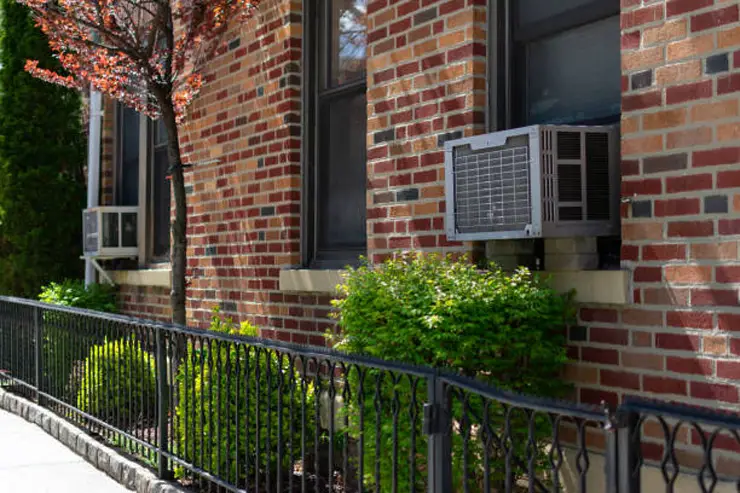
Outside temperatures can have a serious effect on your window air conditioner. The unit needs to work hard once temperatures increase it might not be able to keep up.
Many air conditioning units, including window air conditioners, are maxed out once the outside temperature goes beyond 95°F. Once it reaches this point, the unit will no longer be able to work any harder. At 95°F, the unit can keep your home at about 78°F to 80°F. If your thermostat is set at less than 78°F, it will no longer make your house any cooler.
If the temperatures outdoor are not that high, the heat exchanger will be doing most of the job of cooling the air inside the house. Once the temperature goes higher, the compressor needs to work harder as well. It will put stress on the unit’s compressor and will probably cut back its lifespan over time.
Does outside temperature affect home air conditioner
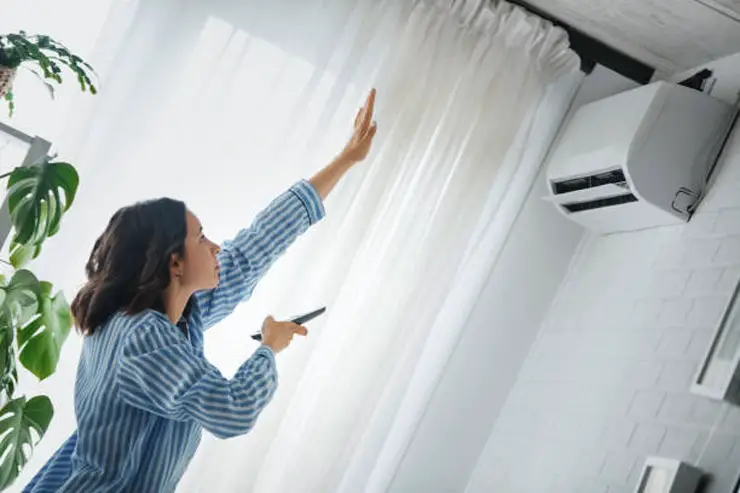
Home air conditioners are meant to work at high temperatures to help normalize indoor temperatures. These units are meant to accommodate a difference of up to 30°F between external and internal temperatures. Beyond this and your air conditioner will have a hard time keeping your house cool.
This is the reason why many AC units are designed to work at less than 100°F and they need to push their maximum capacity once the temperatures outdoors reach around 95°F.
Something beyond this can cause some significant damage to your AC unit. It is because if your air conditioning unit continually runs, the air filters can get clogged, debris may accumulate faster in the fans, the unit can get overheated, and there will be a need for more electric input for the unit to perform optimally.
Brutal months of summer can also cause damages to your AC aside from increasing your electric bills. Similar to how higher temperatures reduce the performance of your air conditioner, lower or ambient temperatures can also do the same. This is because when temperatures are lower, your AC will work harder to create a noticeable change. Interested to learn how to reduce ac power consumption?
Can outside temperature affect central AC
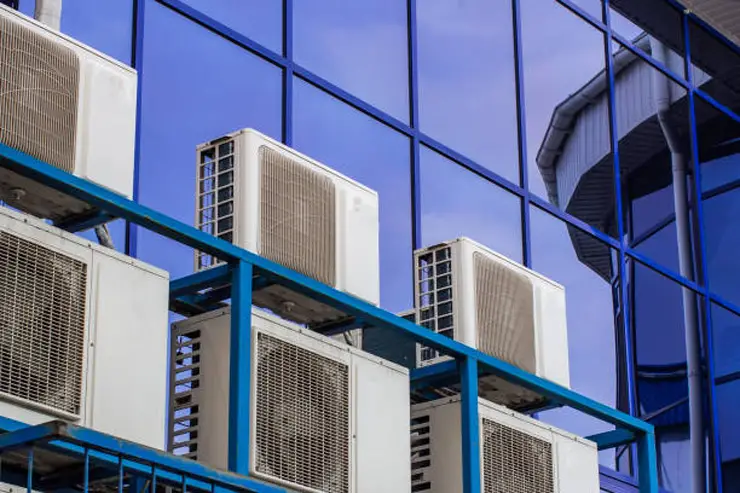
Once the temperatures begin to rise, less efficient, older, or undersized air conditioner systems will have a hard time cooling indoor air. The cycle of air conditioning involves the circulation of the refrigerant or the fluid that changes to a vapor or gas that will absorb heat from the preferred location then transfers this outside.
Air conditioning systems work harder as the outside temperatures increase since the air conditioning cycle will require that the outdoor temperatures are lower compared to the heat that the unit releases.
At what temperature does an air conditioner stop working
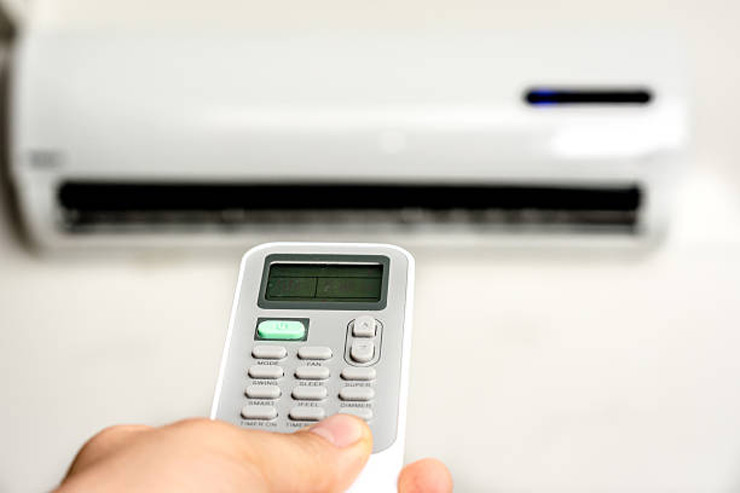
Among the most common complaints of people when peak summer months kick in is that their AC unit doesn’t cool effectively or its compressor no longer works properly.
What many people don’t seem to realize is that the air conditioner’s outer part in the case of window ACs or the outdoor unit in the case of split ACs faces the sun directly. All air conditioning systems have an optimum operating temperature, the surrounding or ambient temperature, at which the units can work or function most effectively.
Once the temperature goes higher than the optimum temperature, this will affect the efficiency of the AC unit and it might even reach a point when the compressor may stop working completely. When the efficiency is reduced, this will also use up more electricity compared to what is indicated on the BEE label. The numbers on the BEE label are typically in test conditions.
We strongly recommend you to read our ac outdoor unit in sunlight guide to ensure you know how to protect your air conditioner outdoor unit from sunlight.
Maximum outside temperature air conditioner
Once the outside temperature goes beyond 100°F, the air conditioner unit may use up more energy and start to fail or malfunction. Once the outside temperatures reach 95°F or higher, the air conditioner unit will run at maximum capacity.
Minimum outside temperature air conditioner
In general, the minimum outside temperature is about 60°F for the unit to work. Anything that lowers this temperature, the refrigerant will start to behave differently and the unit may no longer work as it is meant to.
Is 72 too cold for AC
Is 72 a good temperature for air conditioning? The usual comfort zone temperature for many people is about 72°F to 73°F. However, your AC is not a highly scientific appliance. Setting your thermostat at 78°F usually maintains sufficient cool air inside the room for ultimate comfort. Air conditioners typically can no longer operate at less than 60°F.
